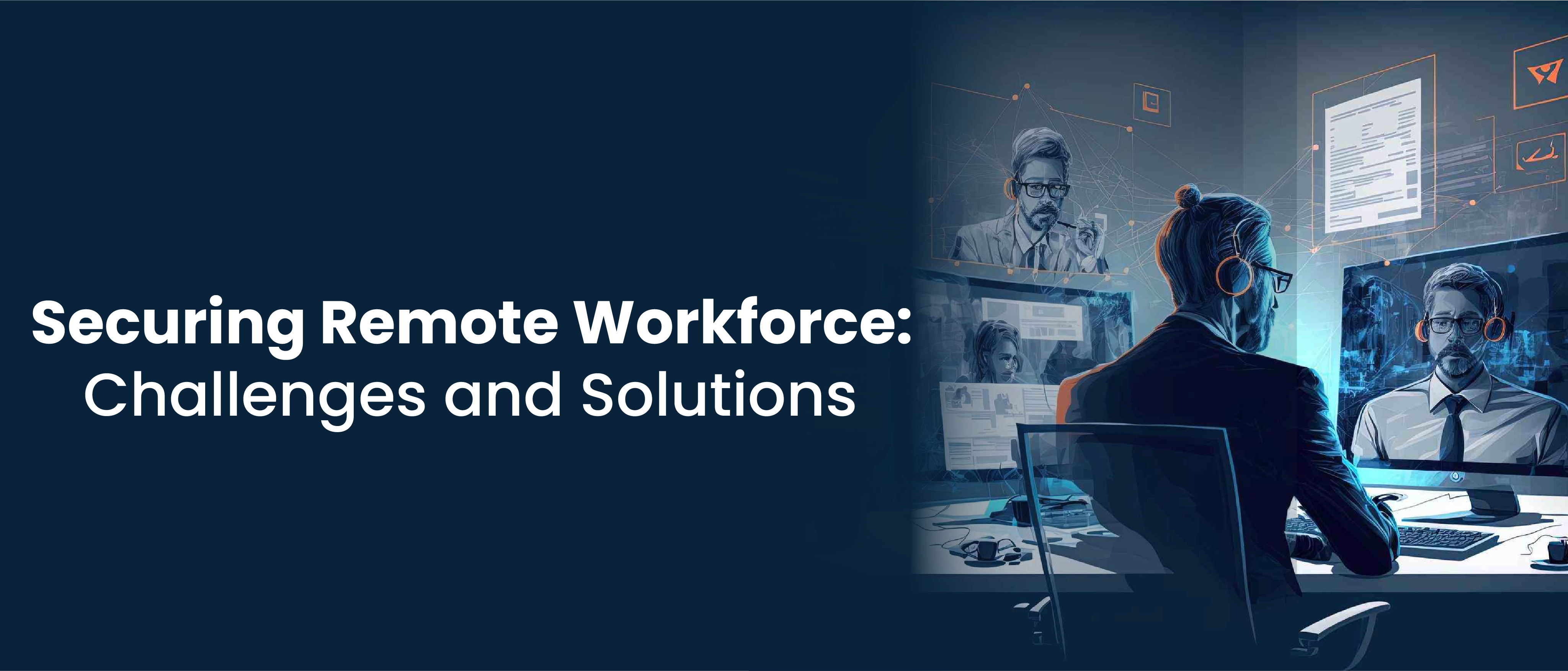Navigating Remote Work Security: Safeguarding the Virtual Realm

In the modern landscape, remote work has emerged as a transformative trend, offering flexibility and convenience. Yet, as this shift unfolds, ensuring the cybersecurity of remote operations becomes a paramount concern. In this blog, we'll delve into the realm of securing remote workforces, addressing challenges, and presenting solutions that fortify the digital frontlines.
The Rise of Remote Work and Its Impact on Cybersecurity
The remote work revolution has rewritten the rules of traditional work setups. With laptops and coffee shops replacing cubicles and offices, the boundaries of the workplace have expanded.
However, this newfound freedom comes hand in hand with cybersecurity challenges that demand attention.
Common Security Challenges Faced by Remote Workers and Organizations
Remote workers, often operating beyond the protective cocoon of office networks, can inadvertently introduce vulnerabilities. Phishing attacks, unsecured Wi-Fi networks, and unauthorized device access are just a few of the potential pitfalls. For organizations, managing access controls, enforcing security policies, and maintaining consistent software updates across a dispersed workforce can be akin to herding digital cats.
Strategies for Securing Remote Endpoints and Communication Channels
1. Endpoint Protection: Outfit remote devices with robust antivirus and antimalware software. Regular scans and automatic updates act as digital sentinels guarding against malicious software.
2. Multi-Factor Authentication (MFA): Require more than just a password for accessing systems. MFA adds an extra layer of security by demanding a secondary verification method.
3. Secure Communication Tools: Embrace encrypted communication platforms. End-to-end encryption ensures that even if intercepted, communications remain unreadable.
4. Data Loss Prevention (DLP): Implement DLP solutions to monitor and control the flow of sensitive data. This helps prevent inadvertent leaks or intentional data breaches.
Remote Access and VPN Best Practices for Enhanced Security
1. Virtual Private Networks (VPNs): VPNs are like digital tunnels that shield data traffic from prying eyes. Ensure that remote workers connect through a VPN, especially when using public Wi-Fi networks.
2. Strong Encryption: Select VPNs that offer robust encryption standards. This encodes data, making it unintelligible to anyone attempting to intercept it.
3. Regular VPN Audits: Conduct periodic audits of your VPN infrastructure to identify potential vulnerabilities and ensure its efficacy.
The Importance of Continuous Monitoring and Incident Response for Remote Work
In the realm of cybersecurity, vigilance is the watchword. Continuous monitoring of remote systems and networks helps in detecting anomalies or unauthorized activities. An efficient incident response plan outlines steps to follow if a breach occurs, minimizing potential damage.
To sum it up, remote work is a dynamic paradigm that ushers in flexibility, yet poses a distinct set of cybersecurity challenges. By recognizing these challenges and adopting proactive measures, both remote workers and organizations can fortify their defenses. Whether it's safeguarding
communication channels through encryption, securing remote endpoints with powerful software, or enforcing VPN best practices, every step taken contributes to a robust cybersecurity ecosystem.
As the virtual realm continues to evolve, the need for cybersecurity education and awareness cannot be overstated. Both individuals and organizations must cultivate a security-conscious mindset, understanding that each click, each login, and each shared file carries a cybersecurity implication. Together, we can bridge the digital divide between remote work and security, creating a landscape where productivity thrives, and data remains protected.
Contact
For more information on how we can help you secure your data, get you compliant and protect your business, please complete the form below and one of Information security / Cyber Forensic expert and Compliance specialists will respond to you as soon as possible.


